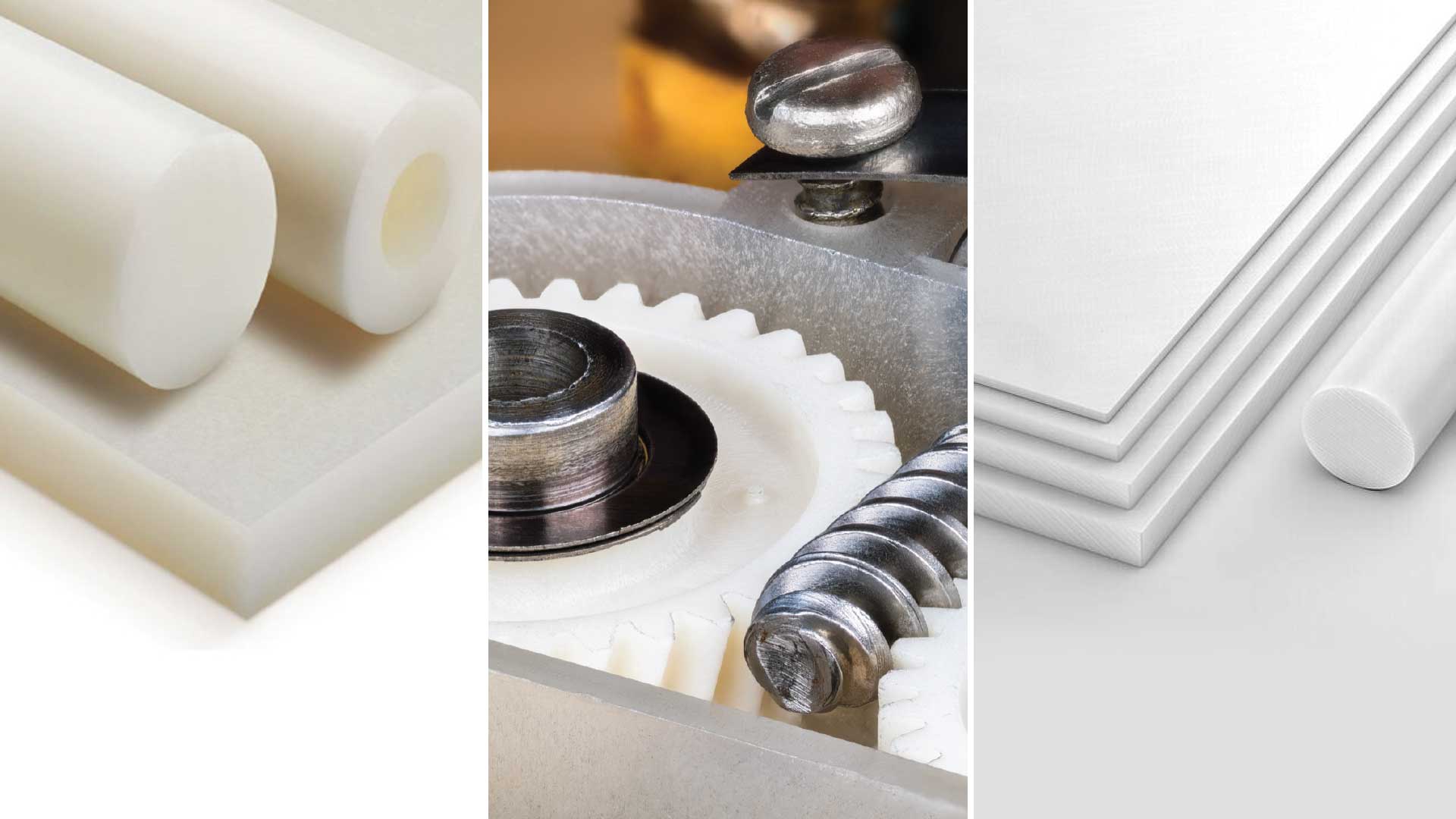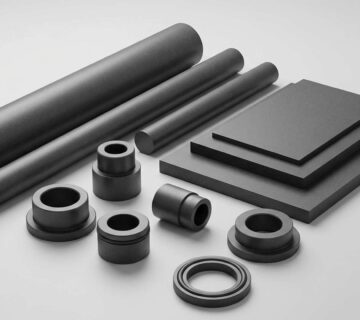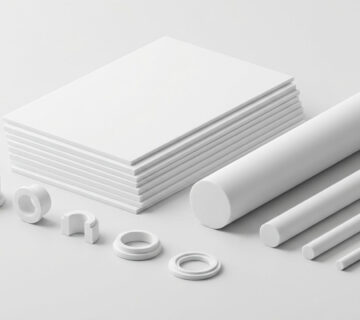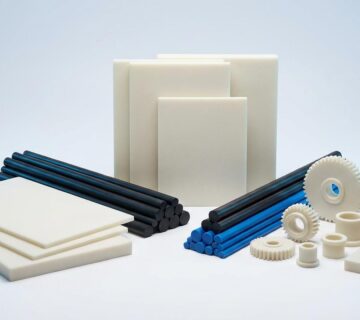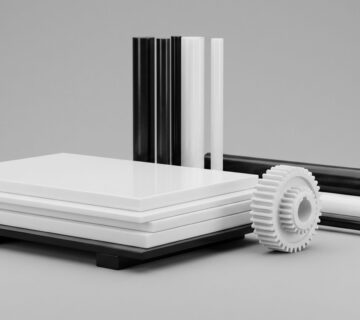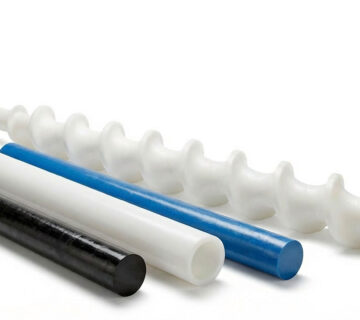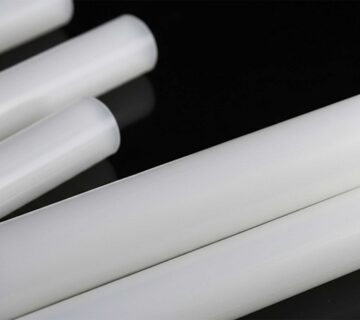High-Density Polyethylene (HDPE) is one of the most prominent plastics that has brought a significant transformation in many industries, thanks to its superior physical and chemical properties. It combines strength, light weight, and resistance to harsh environmental conditions, making it the ideal choice in insulation, piping, and packaging applications. In this article, we review its key features, uses, and current market trends in Egypt.
Table of Contents:
- Definition of High-Density Polyethylene
- Main Uses of High-Density Polyethylene
- Production of High-Density Polyethylene and Its Modern Technologies
- Get Your Polyethylene from Elsharq
What is High-Density Polyethylene (HDPE) and Why Is It One of the Most Important ?
High-Density Polyethylene (HDPE) is an advanced type of polyethylene characterized by its high density and tightly packed crystalline structure, which grants it unique mechanical properties. These properties make HDPE one of the most widely used and trusted plastics across various industrial and engineering sectors. It is produced through the polymerization of ethylene gas under low pressure with specialized metallic catalysts, resulting in long polymer chains with strong bonding
HDPE stands out due to its exceptional resistance to corrosion, chemicals, and moisture. It can withstand both high and low temperatures without losing its durability or cracking. Because of these features, HDPE has become an essential material in vital applications such as piping systems, chemical storage tanks, and waterproof and thermal insulation solutions
Furthermore, HDPE is recyclable and environmentally friendly, which enhances its position in modern industrial markets. Its uses have expanded widely due to its superiority over other types such as Low-Density Polyethylene (LDPE) and Linear Low-Density Polyethylene (LLDPE) in terms of strength, rigidity, and longevity
Key Uses of High-Density Polyethylene (HDPE) in Industry, Infrastructure, and Everyday Products
High-Density Polyethylene is widely used due to its exceptional physical and chemical properties, combining durability, resistance, and lightness. These qualities have made it a trusted material in a broad range of essential applications that impact both daily life and large-scale industries.
Some of the main uses of HDPE include:
- Piping and Water Transportation Systems: HDPE is extensively used in manufacturing water supply and sewage pipes because of its high resistance to pressure and chemicals
- Thermal and Waterproof Insulation: Construction and infrastructure companies rely on HDPE for insulation projects to protect structures from water leakage and corrosion
- Food Industry: It is used in producing food containers and packaging due to its antibacterial resistance and ease of cleaning
- Fuel and Chemical Tanks: HDPE is chosen for tanks storing fuel and chemicals because of its strong resistance to solvents and acids
- Consumer Products: Commonly found in items like toys, garbage bins, cutting boards, and other everyday tools
- Undoubtedly, HDPE’s diverse applications form the backbone of many industries, making it an indispensable material in modern manufacturing
HDPE Production Industry and Its Modern Technologies in Manufacturing and Development
The high-density polyethylene (HDPE) industry is considered one of the advanced industries that has witnessed remarkable development in recent decades, thanks to innovations in production techniques and the employment of the latest chemical and mechanical methods. The core process relies on the polymerization of ethylene gas using metallic or organic catalysts within specialized reactors operating at low pressure, leading to the formation of long and densely packed polymer chains that grant the material high density and exceptional hardness
Steps in HDPE Production:
- Supplying pure ethylene gas as the primary raw material.
- Using advanced catalysts to regulate the polymerization reaction.
- Precise thermal treatment to control density and crystalline structure.
- Adding enhanced materials to improve resistance to UV radiation and chemical corrosion.
Modern technologies have notably advanced through:
- High-efficiency low-pressure techniques.
- The use of environmentally friendly catalysts.
- The introduction of additives to improve mechanical properties.
These developments make the applications of HDPE more reliable in harsh operating environments such as sewage networks, hazardous material tanks, and industrial insulation projects, cementing its status as an indispensable material in the modern industrial market.
Also read:
- Best Transparent Plastic as a Glass Alternative
- Get High-Quality Transparent Acrylic Sheets
Get High-Density Polyethylene from Al Sharq – Your Top Supplier for Quality and Reliability
When it comes to obtaining high-density polyethylene (HDPE) with guaranteed quality and high technical specifications, Al Sharq Metals & Industrial Supplies stands at the forefront of leading companies in this field inside and outside Egypt. We provide globally certified HDPE raw materials used in various industrial sectors such as water and sewage networks, chemical tanks, thermal insulation, and advanced packaging systems.
Our products feature:
- High purity and precisely calculated density to ensure superior performance under the harshest operating conditions.
- Excellent resistance to corrosion, moisture, and chemicals.
- Availability in all required sizes and shapes, whether pipes, sheets, or raw pellets.
- Competitive prices and after-sales service including full technical support.
- Strict adherence to delivery schedules to ensure orders arrive on time.
The HDPE applications we offer suit both small and large projects, and we help you select the best type based on your requirements. To know the price of high-density polyethylene raw material in Egypt and technical details, get your Polyethylene now!
Also read:
- What is Polypropylene ?
- Types of Polycarbonate Sheets
Conclusion: High-Density Polyethylene – The Material of the Future in Industry
As we have reviewed in this comprehensive guide, it is clear that High-Density Polyethylene (HDPE) is no longer just an ordinary plastic material but has become a strategic element in various modern industries due to its exceptional mechanical and chemical properties. Its strength, durability, and light weight make it the ideal choice for critical applications such as piping systems, sewage networks, thermal and waterproof insulation, chemical storage, as well as in the food and consumer industries
The significant advancements in its manufacturing technologies—using environmentally friendly catalysts and improved additives—have enhanced its reliability and efficiency under the harshest operating conditions
For those seeking high-quality HDPE raw materials with precise specifications and unmatched quality, Al Sharq Metals and Industrial Supplies Company is your foremost and most trusted destination. We not only provide high-quality products but also offer comprehensive industrial solutions that meet the needs of both small and large projects
Order now from Al Sharq at 01030656516 and excel at every stage of manufacturing and quality
Frequently Asked Questions
Is High-Density Polyethylene (HDPE) dangerous?
High-Density Polyethylene (HDPE) is completely safe when used correctly and is not classified as hazardous to health or the environment. It does not release toxic substances and does not react with most chemicals, making it suitable for storing and transporting water, food, and industrial chemicals. HDPE also has high resistance to heat and moisture, and it does not easily crack or degrade, ensuring stability and safety for long-term use
Looking for high-quality, certified HDPE raw materials Al Sharq Metals & Industrial Supplies Company offers you the best pure HDPE raw materials with high technical specifications suitable Get the best pure HDPE polyethylene raw materials with high technical specifications.
What is the difference between HDPE and LDPE?
The main difference between HDPE and LDPE lies in their density and molecular structure, which directly affects their properties and uses
HDPE (High-Density): Has a more tightly packed crystalline structure, giving it higher rigidity, better resistance to corrosion and chemicals, and tolerance to higher temperatures and pressures. It is widely used in pipes, chemical tanks, and construction materials
LDPE (Low-Density): Has a more flexible and branched structure, making it softer and less rigid than HDPE. It is commonly used in plastic bags, films, and packaging due to its flexibility and ease of molding
Both types are environmentally safe and recyclable, but choosing the right one depends on your usage requirements
Need help choosing the right type?
Order now or contact us for more details and special offers on polyethylene raw materials!
What are the disadvantages of polyethylene ?
Despite the many advantages of HDPE, it has some drawbacks such as susceptibility to UV radiation, which may reduce its durability over time, and it cannot withstand high temperatures for long periods. It can also deform under continuous pressure, and it is difficult to adhere to or paint without special treatments. However, these drawbacks can be greatly minimized by selecting the right type and following proper processing methods.
Looking for high-quality polyethylene raw materials that precisely meet your project needs?
Contact us via WhatsApp at 01030656516. Al Sharq team is ready to provide the best technical solutions and support at competitive prices
What are the uses of High-Density Polyethylene ?
HDPE is used in many fields due to its strength and durability. It is used in manufacturing water and sewage pipes because it resists pressure and chemicals. It is also used for insulation to protect buildings from leaks and moisture. Additionally, it is used to manufacture food containers and chemical tanks due to its high resistance. Moreover, it is used in everyday products such as toys and storage boxes
Need high-quality HDPE raw materials suitable for your needs?
Contact us via WhatsApp at 01030656516and get the right support for your project

